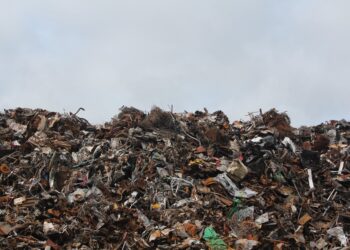An innovative technology from synbio company EnginZyme is unlocking new opportunities for the chemicals industry. Liz Gyekye unpicks this issue.
The production of chemicals accounts for 7% of all industrial greenhouse gas emissions1.Before 2050, the industry needs to cut its own emissions by half, while at the same time quadrupling production to meet growing demand2.
Maintaining economic growth, whilst making industry greener is one of the great challenges of our era. Fresh approaches, genuine innovation and new solutions are all needed to deliver answers to this quandary. And whilst climate change is a problem created by humans, we can look to nature for solutions. Today, we are proud to profile Swedish synthetic biology pioneers, EnginZyme, who have developed a paradigm-shifting approach which can both substantially limit the environmental impact of chemical processes while at the same time greatly improving their economics.
Whilst the benefits and potential of using synthetic biology for manufacturing chemical products are well documented, most companies in this field take the fermentation approach. And fermentation, while powerful, has drawbacks. Firstly, re-programming a cell to do something it wasn’t designed to do is a highly complex endeavour, often requiring large investments into robotics and DNA synthesis.
Another challenge is the cells themselves, which need to stay alive and are thus constantly diverting energy to life-upholding processes, which adds nothing to the product that is being sought. These two aspects increase the cost of fermentation and hold back the development of biological manufacturing, which is truly cost-competitive with traditional chemical industry processes.
Back in 2014, the founders of EnginZyme knew there was a more efficient way of harnessing the power of nature, which led to the founding of the company. Instead of modifying an existing organism, EnginZyme takes the enzymes out of the cell, engineers them to be stable for a long time, and immobilises them on an engineered material that can be used in a packed-bed reactor.
This in essence allows EnginZyme to mimic metabolic pathways outside of the cell. When comparing the engineering designs of their technology to a commercial fermentation process, it was shown to cut OPEX by 40%, reduce CAPEX by 40%, and energy use by 70%. And the range of applications for EnginZyme’s for industrial-scale bio-production of compounds is very wide – ranging from pharma and nutrition to agrochemicals and personal care, and even commodity chemicals like plastics.
Speaking to the passionate team they share an analogy they use when discussing their work with those unfamiliar with the intricacies of synbio – they ask me to imagine opening the hood of a car (the car being the living cell) and removing the engine (the enzymes), which allows researchers to use the engine for different purposes, free from the constraints of the car. In relation to the traditional fermentation process, the living cell (the body of the car) has to stay alive around the enzymes (the engine) for them to still do their job. However, with EnginZyme’s technology one could take the engine (enzymes) out of the car (living cell) and run the engine more efficiently without the need of the car.
With conventional fermentation technology you put everything in a large-vessel tank and mix. That chemistry depends on enzymes. For instance, when we hear about a company that has engineered a bacterium to turn sugar into a high-value chemical, it is actually a set of enzymes inside the bacteria that does the hard work of transforming sugar into a chemical.
The bacteria simply act as tiny tanks that produce and mix the enzymes, facilitating the fermentation process that makes useful chemicals for us. However, with EnginZyme’s approach, the enzymes, which are now attached to solid particles, can be put in a compact vessel, and the various ingredients can flow through the fixed enzymes, and the final product flows out the other end.
Immobilised enzymes have been used as catalysts before, but mimicking metabolic pathways in flow has been beyond the reach of even the most advanced technologies.
The general nature of EnginZyme’s immobilisation technology, coupled with its automation and high-throughput platform, allow for rapid development of things that were previously impossible.”
“We don’t need to re-invent super-efficient catalysts, biology already provides us with enzymes. But we do need to find ways of using enzymes in a factory friendly way, to marry biology with industrial chemical process technology. Our solution, a child of that marriage, is enzyme cascades in flow chemistry reactors – which I believe will transform the entire industry,” EnginZyme CEO Karim Engelmark Cassimjee says.
Biotechnology-dedicated venture capital firm Sofinnova Partners acknowledged the importance of EnginZyme’s technology after it recently led a Series A round of €6.4 million, bringing the company’s total funding to more than €10 million.
“Obviously, we believe in the power of synbio as a transformer of the industry. As for EnginZyme and the cell-free approach, with the economics it can achieve, all I can say is: Watch this space…” Michael Krel, Partner of the Sofinnova Industrial Biotech Fund, says.
Looking ahead, EnginZyme wants to work with more companies to develop sustainable industrial bioprocesses and is actively seeking discussions with companies and organisations across the chemicals industry.
In these times of increasingly focussed sustainability targets but economic challenges, any type of technique that can sharpen processes, increase yields and drive revenues becomes increasingly important. Thomas Friedman, an economist is known to quote Sheik Ahmed Zaki Yamani who said: “The Stone Age didn’t end because we ran out of stones.”
There’s no better time than now to change how we do things for the better, and the synbio technologies, like those developed by the pioneers at EnginZyme that both identify and solve clear problems and offer improvements for business and the planet have never been more important.
To learn more about EnginZyme, and how they can support your growth, contact Beatrix Ellis, Chief Commercial Officer at EnginZyme, on beatrix@enginzyme.com
References:
1 International Energy Agency (IEA) -Technology roadmap: energy and GHG reductions in the chemical industry via catalytic processes. Paris (France): IEA Publications; 2013.
2 Valencia, R., 2013. The future of the chemical industry by 2050. Weinheim, Germany: Wiley, p.269.
This story first featured in Issue 18 of the Bio Market Insights Quarterly, click here to download.













